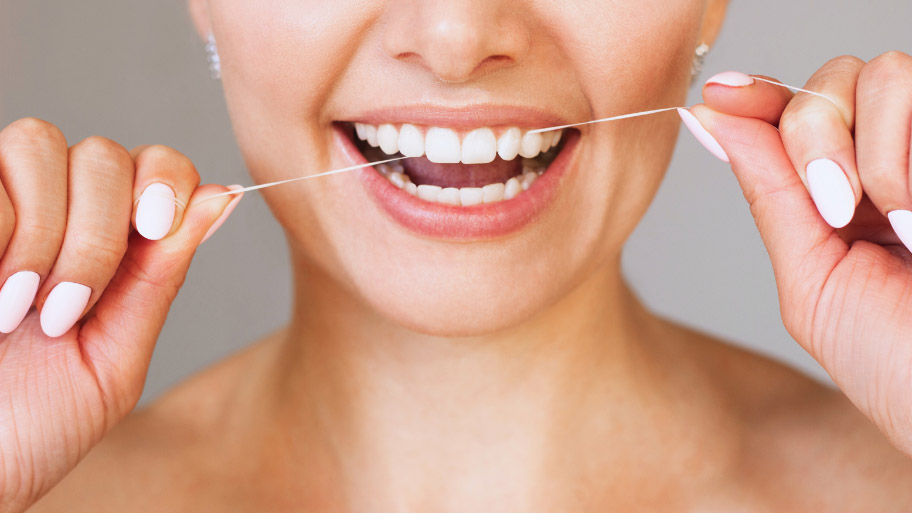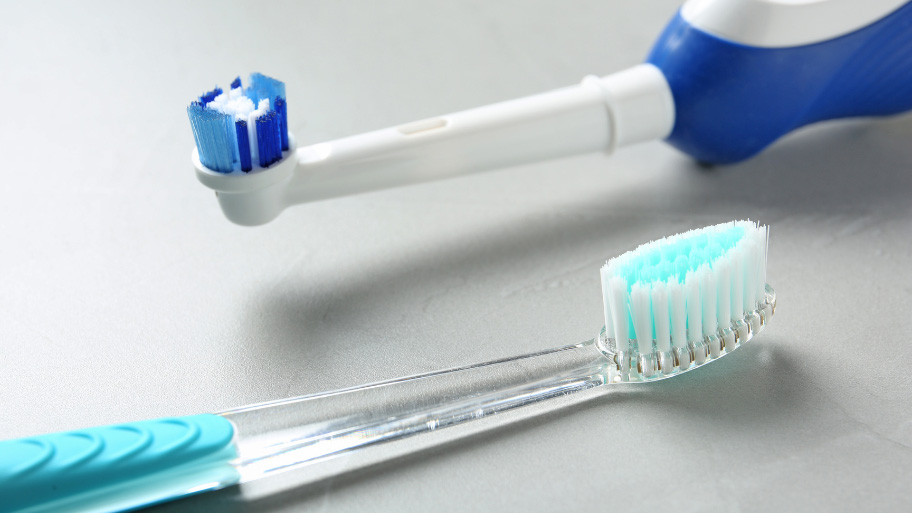Good Dental Hygiene Routine Made Easy: Top Dental Hygiene Tips
Maintaining a good dental hygiene routine doesn’t have to be complicated. Whether you’re looking to prevent cavities, keep your breath fresh, or simply improve your daily habits, simple steps can make a big difference.
If you’ve ever wondered:
✅ What’s the best way to take care of my teeth and gums?
✅ How can I make my daily routine more effective?
✅ What habits actually prevent dental problems?
You’re in the right place!

At Dimples Family Dentistry in Norwalk, IA, we help patients build strong oral hygiene habits that lead to healthier smiles.
Whether you're in Norwalk or the surrounding areas, following the right dental hygiene tips will ensure your gums and teeth stay in top shape.
In this guide, we’ll break down easy, practical dental hygiene tips that fit into your busy schedule.
With the right approach, you can keep your gums healthy, your teeth strong, and your smile confident—all with simple, proven habits.
Let’s get started! 🚀
Why a Good Dental Hygiene Routine Matters (And How It Benefits You)
Taking care of your teeth isn’t just about keeping them white—it’s about protecting your health, confidence, and long-term well-being.
A good dental hygiene routine prevents problems before they start, saving you from discomfort, costly treatments, and potential health complications.
Beyond a Bright Smile
While fresh breath and clean teeth are great benefits, oral hygiene goes far beyond appearances.
Your mouth is the gateway to your body, and neglecting it can lead to bigger health issues like gum disease, infections, and even conditions linked to heart health and diabetes.
Here’s what happens when dental care is overlooked:
🦷 Gum inflammation can lead to infections that spread to other parts of your body.
🦷 Plaque buildup creates cavities and weakens enamel, leading to sensitivity and pain.
🦷 Untreated oral issues may contribute to more serious health conditions over time.
Are You Overlooking Signs of Poor Dental Hygiene?
A solid dental hygiene routine helps prevent common dental problems, but how do you know if you need to step up your routine? Here are a few warning signs:
🚩 When you floss or brush, do your gums bleed? Healthy gums shouldn’t bleed easily.
🚩 Your teeth feel rough or coated. Plaque buildup can cause a sticky or fuzzy feeling on your teeth.
🚩 You experience tooth sensitivity. This could mean enamel erosion or an underlying issue.
If any of these sound familiar, it might be time to improve your dental care routine.
Next, we’ll walk through a simple, step-by-step routine to keep your teeth and gums in top shape—without making it feel like a chore.
The Easy-to-Follow Daily Routine for Great Dental Hygiene
Now that you know why a good dental hygiene routine matters, let’s break it down into a simple, step-by-step routine that keeps your teeth and gums in top shape.
No complicated techniques—just practical, no-fuss dental hygiene tips you can start using today!
Brushing Done Right: The Simple 2-Minute Trick
Brushing is the foundation of great dental hygiene, but most people either rush it or use the wrong technique. Here’s how to get the most out of those two minutes:
✔ Brush twice a day—once in the morning and once before bed.
✔ Use fluoride toothpaste to strengthen and fortify enamel and prevent cavities.
✔ Tilt your toothbrush at an angle of 45 degrees and move it in soft, circular strokes.
✔ Don’t forget your tongue! Bacteria buildup here can cause bad breath.
✔ Buy a new toothbrush every 3–4 months or sooner if the bristles fray.
🚫 Common Mistakes to Avoid:
❌ Brushing with too much pressure can wear down enamel and irritate gums.
❌ Rushing through it (aim for a full two minutes each time).
❌ Skipping the back teeth (they’re just as important as the front!).
Flossing Without the Hassle: A Step-by-Step Guide
Flossing often feels like a chore, but it’s the only way to remove food and plaque from areas your toothbrush can’t reach.
If you’ve ever skipped flossing because it feels too difficult or time-consuming, try these easy steps:
1️⃣ Use about 18 inches of floss—wrap it around your fingers, leaving an inch or two to work with.
2️⃣ Gently glide the floss between your teeth—don’t snap it down.
3️⃣ Curve it into a “C” shape against each tooth and slide it under the gumline.
4️⃣ Move to a clean section of floss as you go to prevent bacteria transfer.
5️⃣ Floss once a day, preferably before bedtime.
💡 Struggling with Flossing? Try These Alternatives!
✔ Water flossers – Great for people with braces or sensitive gums.
✔ Interdental brushes – Small, reusable brushes for cleaning between teeth.
✔ Floss picks – Convenient for on-the-go flossing but not as thorough as string floss.
The Must-Have Oral Hygiene Products You Should Be Using
A good dental hygiene routine isn’t just about brushing and flossing—it’s also about using the right products to keep your mouth healthy. Here’s what actually works:
🔹 Mouthwash – Helps kill bacteria, freshens breath, and reduces plaque. Look for alcohol-free formulas if you have sensitive gums.
🔹 Fluoride Toothpaste – Strengthens enamel and prevents cavities. For those with sensitive teeth, it’s best to skip whitening toothpaste since it can be too harsh on enamel.
🔹 Tongue Scrapers – Remove bacteria and reduce bad breath better than brushing your tongue alone.
🔹 Sugar-Free Gum – Helps stimulate saliva production, which naturally cleans teeth and neutralizes acids.
💡 Pro Tip: Not sure which products are best for you? Our team at Dimples Family Dentistry in Norwalk, IA, can recommend the right options based on your dental needs and lifestyle!
Extra Habits That Improve Your Oral Health (Beyond Brushing & Flossing)
Brushing and flossing are essential, but a truly good dental hygiene routine goes beyond your toothbrush.
The daily choices you make—from what you eat to how you care for your teeth throughout the day—can have a big impact on your oral health.
Here are a few simple, practical habits will keep your teeth and gums in great shape for the long haul.
Daily Habits That Protect Your Teeth
🛑 Stay Hydrated – Keeping yourself hydrated helps clear away leftover food and harmful bacteria, lowering the chances of plaque forming and keeping your breath fresh.
Plus, if your tap water contains fluoride, it strengthens enamel and protects against cavities.
🥑 Eat Tooth-Friendly Snacks – Some foods help clean your teeth naturally and support oral health. Instead of sugary snacks, try:
✔ Crunchy fruits and vegetables (apples, carrots, celery) – These act as natural toothbrushes!
✔ Cheese and yogurt – High in calcium, they help fortify teeth and neutralize acids in your mouth.
✔ Nuts and seeds – A good source of minerals that help protect enamel.
🚫 Control Sugar Intake – Sugar fuels the bacteria that cause cavities and gum disease. Reducing sugary foods and drinks—especially sticky candies and sodas—helps prevent plaque buildup and enamel erosion.
Hidden Habits That Damage Your Teeth
🔹 Grinding Your Teeth – Teeth grinding often goes unnoticed, especially during sleep, and can lead to enamel wear over time. If you awake with headaches or jaw pain, speak to your dentist about a nightguard to defend your teeth.
🔹 Frequent Acidic Foods & Drinks – Citrus fruits, soda, and even some sports drinks contain acids that weaken enamel over time. If you enjoy these, rinse your mouth with water afterward and avoid brushing immediately, as brushing right after acid exposure can wear away softened enamel.
🔹 Smoking & Tobacco Use – Not only does smoking stain your teeth, but it also damages gum tissue and grows your risk of gum disease and tooth loss. If quitting feels overwhelming, your dentist can offer guidance and resources to help.
How Often Should You See a Dentist? (And How to Make Visits Stress-Free)
Even with a good dental hygiene routine, regular visits to the dentist are essential for keeping your teeth and gums in top shape.
But how often should you actually go? And what if dental visits make you anxious?
Let’s break it down so you know exactly when to schedule a checkup and how to make your visits easier and stress-free.
How Often Should You Go for Checkups & Cleanings?
The general rule of thumb is to see a dentist every six months for a routine exam and professional cleaning. But this can vary according to your unique personal needs.
🦷 Twice a year – Ideal for most people to prevent plaque buildup and catch small issues early.
🦷 Every 3-4 months – If you have gum disease or a record of dental problems, your dentist may recommend more frequent visits.
🦷 Once a year (at minimum) – If your oral health is excellent, some dentists may suggest an annual visit, but more frequent checkups are always better.
💡 Not sure what’s right for you? The best way to know is to ask your dentist during your next visit. They’ll recommend a schedule based on your dental history and current health.
When to Call a Dentist ASAP
Regular visits are great for prevention, but some situations require immediate attention. If you experience any of the following, don’t wait—schedule an appointment right away:
🚨 Tooth pain that won’t go away – Persistent pain could indicate a cavity, infection, or nerve issue.
🚨 Swollen or bleeding gums – This can be a sign of gum disease requiring professional treatment.
🚨 Sensitivity to hot or cold – If your teeth suddenly feel sensitive, it might mean enamel erosion or a deeper problem.
🚨 A loose or broken tooth – Adult teeth shouldn’t feel loose—this could mean trauma, infection, or bone loss.
🚨 A filling, crown, or bridge that’s damaged – Leaving it untreated can lead to further complications.
Nervous About the Dentist? Here’s How to Make Visits Stress-Free
If the thought of a dental visit makes you uneasy, you’re not alone. Many people feel anxious about dental care, but there are ways to make the experience much easier:
✔ Choose a welcoming, patient-focused dentist – A compassionate team (like here at Dimples Family Dentistry in Norwalk, IA) makes all the difference.
✔ Communicate your concerns – Let your dentist know if you’re feeling nervous; they can adjust their approach to make you more comfortable.
✔ Bring headphones or listen to calming music – This can help distract you and ease anxiety.
✔ Schedule visits at a time that works for you – Avoid rushing; pick a time when you feel relaxed.
✔ Practice deep breathing – Simple relaxation techniques can make a big difference in managing stress.
💡 Remember: Modern dentistry is designed to be gentle and pain-free, and your dentist’s goal is to keep you comfortable while helping you maintain a healthy smile.

ABOUT THE AUTHOR
Dr. Roos was raised in West Des Moines, IA. He attended Valley High School and went to college at Luther College in Decorah, IA. He graduated from the University of Iowa College of Dentistry in 2004. He has attended numerous post-graduate courses in endodontics and orthodontics. He is a member of the American Dental Association, the Iowa Dental Association, and the American Orthodontic Society.
Dr. Roos is married to his wife Sara and they have 6 children. He enjoys spending time with his wife and children, gardening, landscaping, and farming with his cousin on their family farms in Avoca, IA.
Put Your Dental in Good Hands
I've been seeing Dr. Ethan Roos at Dimples Dentistry for over 5 years and have always been happy with the care I've received here. The staff has always been very welcoming, as if you are part of the family. I highly recommend!!
Called Dimples and wish I called them first. Their receptionist was SO kind and SO helpful. Even offered to call to have my records sent to them in hopes to save me some money from doing x rays again. She was nothing but sweet! Got me scheduled within 2 days. Went above and beyond and was kind when I arrived.
Dr. Roos and his staff are incredibly professional, kind, and knowledgeable. Their pricing is also extremely reasonable, even for those without insurance. We had an excellent experience with a dental emergency exam; they also had availability to fit us in for a routine exam and cleaning after the emergency exam.




